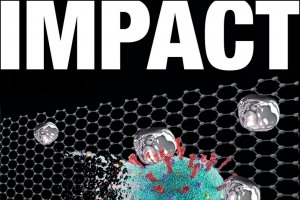PROVIDENCE, R.I. [Brown University] — During the COVID-19 pandemic, Dr. Ashish Jha and Dr. Megan Ranney have appeared as expert guests on hundreds of television and radio programs, given interviews for hundreds more major newspaper and online articles, and written widely discussed commentary pieces. They have become highly recognized faces of Brown.
Jha was named Brown’s new dean of the School of Public Health in February 2020, as COVID-19 was emerging. While not due to start until Sept. 1, Jha spent the spring and summer deeply involved in advising Brown and other groups around the world, along with his roles as director of Harvard’s Global Health Institute, internist at the VA Boston Healthcare System, and professor of medicine at Harvard Medical School.
Ranney, an associate professor of emergency medicine at the Warren Alpert Medical School and emergency physician at Rhode Island Hospital, is the inaugural director of the Brown-Lifespan Center for Digital Health. During the pandemic, she cofounded Get Us PPE, a national group helping frontline health care workers and others obtain needed personal protective equipment. In this Q&A, the two health experts discuss their public stances on the pandemic and how proper education and research can save lives.
Q: During COVID, what have you learned about the impact of research at Brown and beyond?
MEGAN RANNEY: COVID-19 has accelerated our ability to translate what is done within the University’s metaphorical walls into the real world. I’ve always known that my colleagues here are doing really cool, groundbreaking research, but COVID-19 has called on researchers to step outside their comfort zone, and has also created new links between our researchers and the public.
ASHISH JHA: If we go back to January, we knew nothing about this virus. And then of course we had no therapies, we had no vaccine. We were sitting ducks. In an extraordinarily short time, we have learned a ton about whom it affects, how it affects them, what we can do to prevent it. We have essentially decoded a disease that none of us knew about. While there is much work ahead, the whole biomedical community needs to be applauded for the work that has been done.
Q: Why have you made it such a priority to speak publicly about COVID?
JHA: It started as an educational effort. When the pandemic really got going, I found that people were generally confused about what was happening. I found there was hunger for fact-based analysis. In a time of great anxiety and confusion, engaging with the public was a really important part of public health leadership and helping people understand the moment they were in, helping them separate fact from fiction.
RANNEY: I love being a clinician, and I love being a researcher. But the drive behind all of that is the desire to make the world a better place. It was clear early in COVID that there was a deficit of voices translating science into terms that individuals and communities across America could use. We were lucky to have the opportunity to take our knowledge, observations, and collective insights and present them to the public in ways that could shift behavior, policy or philanthropy.
Q: During this period, what have you learned about the value of having medical schools and schools of public health?
JHA: Throughout history, human populations have been decimated by disease outbreaks. And the reason why this one, as awful as it has been, will not decimate the human population is because of biomedical science and public health science. They are a central pillar for how we generate knowledge about the natural world and how we form the basis for policy-making and decision-making.
RANNEY: A great medical school and a great school of public health, particularly when they work together, can serve as rational voices to inform the development or modification of effective health systems. Another important value is creating a work force of the future. By training our students in ways that grow empathy, inquisitiveness and commitment to data — and by intentionally growing a diverse work force that looks like the communities we serve — we can be both on-the-ground and high-level leaders of the work that needs to be done.
